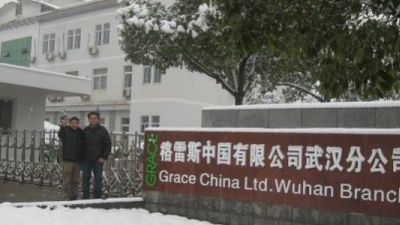Companies who implement management systems for environment (ISO 14001), health and safety (ISO 45001) and psychological health in the workplace (ISO 45003) need support during implementation and preparation for certification and to periodically confirm that the system is working. Inogen Alliance has assisted clients to have a pragmatic approach to ISO standards integration into their business and to ensure that the culture of the company is entrenched in the ISO structure, rather than a separate process or program. Through risk we can assist in creating a management system ISO and put in elements to help manage risks and keep it evergreen. We set up, launch and train employees on the ISO standards. By developing and tailoring international standards we structure a management system fit for purpose for your operations. We are very experienced in performing internal audits between certification audits and strategize what needs to change and improve in the management system. This sets the strategy for how you are testing and tracking your program.
We can support clients with:
- ISO 9001
- ISO 14001
- ISO 45001
- ISO 45003
- ISO 50001
- And more
Have a question or need consultation in regards to EHS Management Systems (ISO 9001, 14001, 45001, 45003, 50001)? Contact a consultant below.
Global EHS Management Systems
EHS Management Systems are increasingly becoming global in scope which can lead to complexities due to physical distance, cultural and language differences and varying regulations. The Inogen Alliance through our network of in-country experts is able to support clients and align their EHS programs to local in-country nuances and regulatory requirements.

Pragmatic Approach. Proactive Systems.
Learn more about Management Systems (ISO 9001, 14001, 45001, 45003, 50001) through Inogen Alliance.
Services include:
- ISO standards training
- Development of Required Documentation for Management Systems (policy, objectives, manual, procedures, work instructions, guidelines/SOPs, and records and forms)
- ISO Management System Internal Audits
- ISO Management Systems Compliance Gap Analysis
- Corrective Action Tracking and Closure
- Develop and implement global programs
- Develop and implement site-specific procedures
Key results:
- ISO Management Systems Implementation and readiness for certification
- Fit for purpose program for unique context of your company
- Trained staff on ISO Management Systems
- Proactive and preventive approach to manage EHS, quality or energy risks
- Well-articulated leadership and engagement commitment
- Integration of EHS quality or energy requirements into all site operations
- Improve efficiency of operations
- Transform from detection to prevention, more proactive approach
The First Public Petroleum Sector Company to Acquire ISO 50001 Certificate in Egypt

- Pre-planning phase: Formulation of energy team, roles and responsibilities, development of energy policy, in addition to scope and boundaries
- Energy review phase: Analyzing the historical energy data, identifying the significant energy users, and identification of energy baseline equation and energy performance indicators
- System planning phase: Identification of critical operating parameters, identification of energy saving opportunities, identification of training requirements, modifying the energy-related purchasing procedures, and identification of objectives, targets and action plans
- System implementation phase: Starting the implementation of the energy saving opportunities in addition to the daily activities of data monitoring, energy performance indicators calculation, in addition to purchasing of energy-efficient goods
- System Checking phase: Monitoring on the daily activities of the implementation phase, in addition to internal audit on the system
Being the first public petroleum sector company to acquire the ISO 50001 certificate, this project is considered a milestone in the petroleum sector in Egypt. It enabled the company to achieve measurable reductions in energy consumption and operational costs while improving process efficiency. The project supported compliance with both local regulations and global energy management standards, strengthening the company’s reputation as a responsible and competitive refiner. Internal teams gained the skills and systems to sustain long-term improvements, reducing environmental impact and enhancing overall business resilience.








